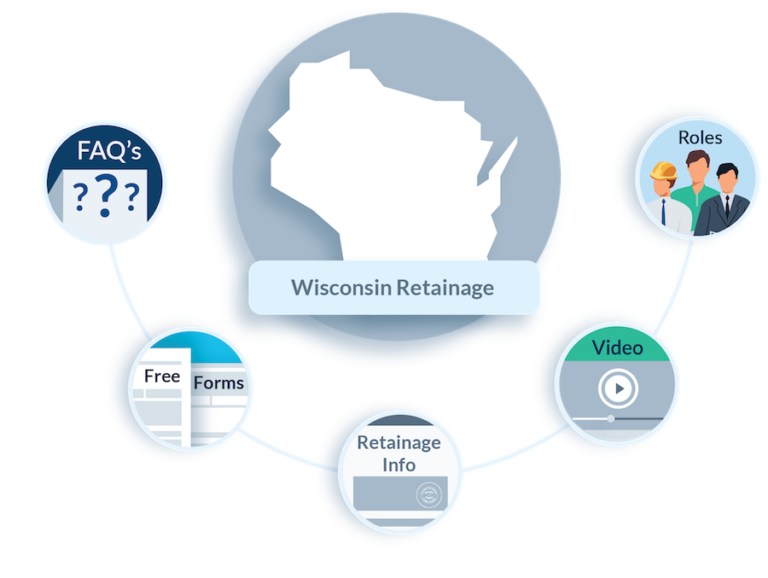Wisconsin Retainage Requirements
- Private Jobs
- Public Jobs
- Top Links
Retainage Limit
Not Regulated by State Law
Pay Period
Not Regulated by State Law
There's No Process to Recover
N/A
Not Held In Escrow
In Wisconsin, contractors and owners do not need to hold retainage funds in a separate escrow account.
5 Percent
Retainage cannot exceed 5%. Once more than 50% of the work is complete, no additional may be withheld, unless work is not progressing satisfactorily. If work is unsatisfactory, the total amount retained cannot exceed 10% of the value of work completed.
7 Day Pay Period
Retainage must be released to contractor upon substantial completion of the work. Contractor must release retainage to subcontractors within 7 days or receiving retainage payment.
There's No Process to Recover
Not specified
Retainage serves two general purposes: (1) To provide an incentive to the contractor or subcontractor to complete the project; and (2) To give the owner some protection against problems like liens, contractual defaults, delays, and more. In most states, laws exist to regulate how the parties use the retainage concept, mostly protecting some parties against abuse of the tool from others. The following are resources, legal information, and frequently asked questions about Wisconsin’s retainage requirements. The Wisconsin retainage statutes are reproduced below on this page.

